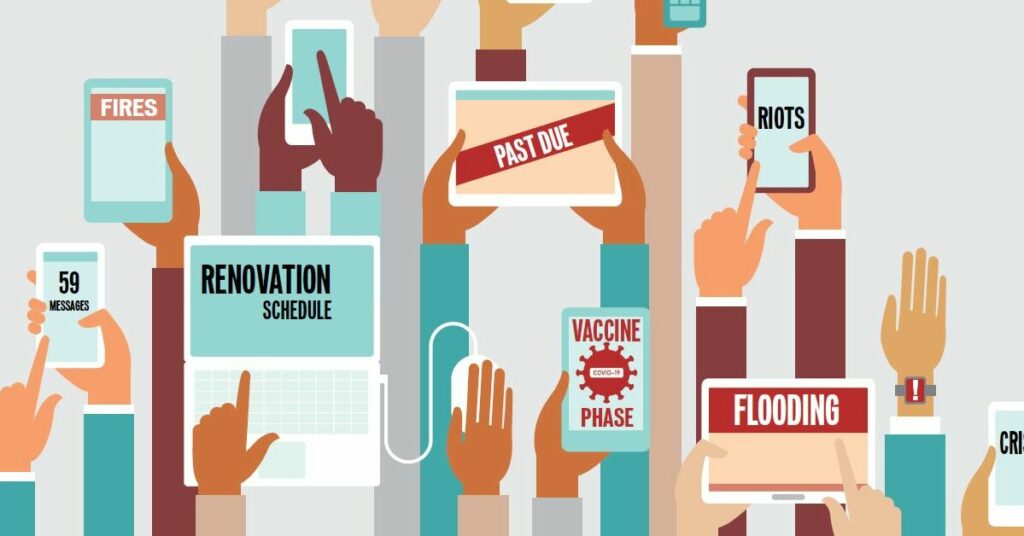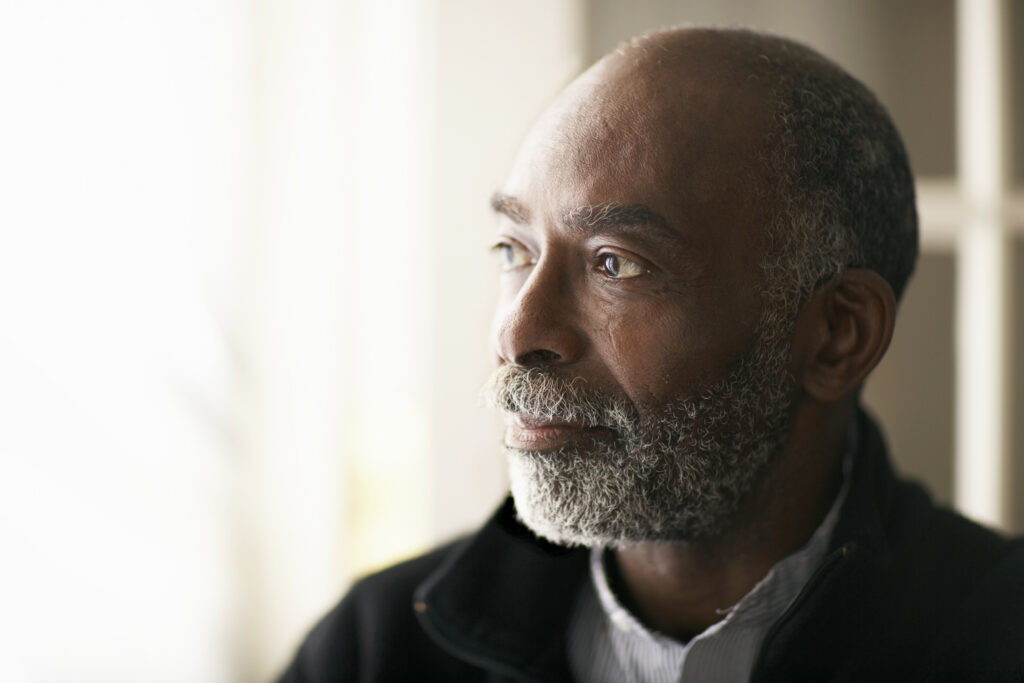The first installment of a two-part series on technology and faith published in the May 2021 issue of The Lutheran Witness. Read the second part here.
There are many reasons to be worried these days. Rioting in the big cities has caused billions in property damage, frigid cold in the South has ruined homes, ongoing forest fires ravage homes in the West and COVID-19 lurks everywhere ready to ambush us. And let us not forget the grind of daily worries. We have bills to pay, house projects to finish and health issues to resolve. To make things worse, your smartphone does not help.
We are told that modern-day technological inventions make our lives easier. I believe this is true; however, ease always comes at a cost. That cost is a divided mind, a mind full of worry. Take modern-day smartphones as an example. Smartphones allow you to talk, text, tweet, email, post and share. They notify you of weather updates, upcoming appointments, banking transactions, breaking news and the need to exercise. To the point, while smartphones create an abundance of opportunities, they are also portals to an abundance of demands, requirements, contacts and distractions. They are tiny tools that can divide the mind and create worry.
A worried mind
Several years ago, I pulled up to my house and saw my wife through the front window. I smiled as I saw her cooking while talking on the phone to a friend. When I came into the house, I soon realized that she was not only cooking and speaking but also washing dishes (via the dishwasher), washing clothes (via the washing machine), drying clothes (via the dryer), vacuuming (via the smart robot vacuum cleaner) and uploading photos for her photography business (via her laptop on the counter).
That day I was really taken aback. I considered what it was like for my grandmother several decades ago on the family farm. When my grandmother would cook, she would cook and sing hymns. And that was it. That is all she could do. While technology has indeed made us more efficient, it has also created a world where we do multiple things at the same time. And that is where difficulty emerges — doing numerous things simultaneously divides the mind. A divided mind fosters worry.
In Matthew 6, Jesus tells us not to worry. He is calling us not to have divided thoughts over food, drink and clothes. For example, think of the birds in the air. Do they fuss, fret, worry and fly around in a complete frenzy, always concerned with what “so-and-so” said online while being distracted about the world’s breaking news? No, they do not. Sure, the birds are busy with building and gathering food, but they do not have a divided mind. And the wildflowers in the fields? Do they run around with a crazed shopping look trying to outfit themselves with the newest clothing and the best sales to look as good as a friend who just posted a selfie? Wildflowers blossom in peace, making the best-dressed, frenzied woman look shabby. They do all this without a divided mind.
While technology has made us more efficient, I am afraid that it has also created a scenario where we are easily divided by many things. We no longer travel in a car with quiet windshield time, but we drive, talk, text and listen to the radio at the same time. Reading a book used to be an escape from the busyness of life; now, when we read on a screen, any number of notifications interrupt us. Once upon a time, we communicated with letters and phone conversations; now, we have messages coming at us from email, texting, Messenger, Snapchat, Twitter, Instagram and so on. And consider this: We used to read about news in the past tense, which removed us — to a certain degree — from the various crises of the world. Now we get the news in the present tense, which seems to put us in the middle of every crisis we hear about. News in the present tense creates urgency.
We are not created or able to stretch our minds apart to give attention to the hundreds of demands, fears, crises, projects and goals in life. It is not humanly possible, which is why Christ calls for us not to worry — not to have a divided mind. Your pastor is never called to preach about increasing or improving the amount of food, drink and clothes you have; that would only divide your mind even more. Instead, your pastor should remove your divided mind by giving you the single-mindedness of Christ and His kingdom. We need to reconsider our use of technology. Despite all the blessings that technology brings, we can be certain that the Lord never intended for us to spend the majority of our lives staring into tiny little screens only to develop a divided mind that scurries around, frantically jumping from one fearful news story to the next notification and never resting in His care.
United in Christ
When you hear about riots, COVID-19, fires, politics, climate change, money and the hundreds of other things that divide Americans mentally and socially, you can have a relaxed mind free of worry. No matter how good or bad things get, the Lord Jesus Christ is your help. If you did not have the Lord, it would make sense for you to fuss over all the things in life and be burdened with a constantly divided mind over an ever-changing world. But you do have the Lord; He cares for you. Therefore, do not worry.
Having Christ, though, does not mean that you need to boycott technology or put your head in the sand to the issues of life; instead, it means that you do not need to be constantly glued to a smartphone getting worked up about what may or may not happen tomorrow or the next day or the day after that. You know that the Lord cares for you in life and death. He holds each day — for you. You need only one thing — the kingdom of God. And, my dear friends, you have the kingdom of God, for where you find the King, you find His kingdom.
His kingdom. Do not worry; you have Christ, and Christ has you. No division; no worry.







Good article with sage advice, thanks. It reminded me of a Malcolm Muggeridge quote, writing in the ’50s, and listening to news reports on the radio: from London, Moscow, Washington etc and the constant “drool” of news which gives one a feeling of self-importance. Instead of listening to Muzak, “newzak”. I think that may be another on the problem side of the internet: it makes us feel real important that we are privy to so much of what’s happening. The old Adam in me loves it!
People need balance. I am the media and website person at my church; however, I limit the time that I spend on my devices. When I am in my car, I enjoy quiet time and don’t even turn on the radio! Technology in and of itself is neither good nor bad. We need to be intentional to teach the next generations tech balance and etiquette.
The worst thing is to have young children clamoring for attention and seeing adults glued to their phones. Soon you see these children beginning to do the same with undivided screen time. We all live in our own little worlds that consists of a tiny screen.
Excellent! Let us take this to heart, “We need to reconsider our use of technology.”
I teach computer science at one of our synodical universities, and I see the problems that tech creates all around us. Students, staff, and faculty are unable to deal with the constant demands and distractions of tech.